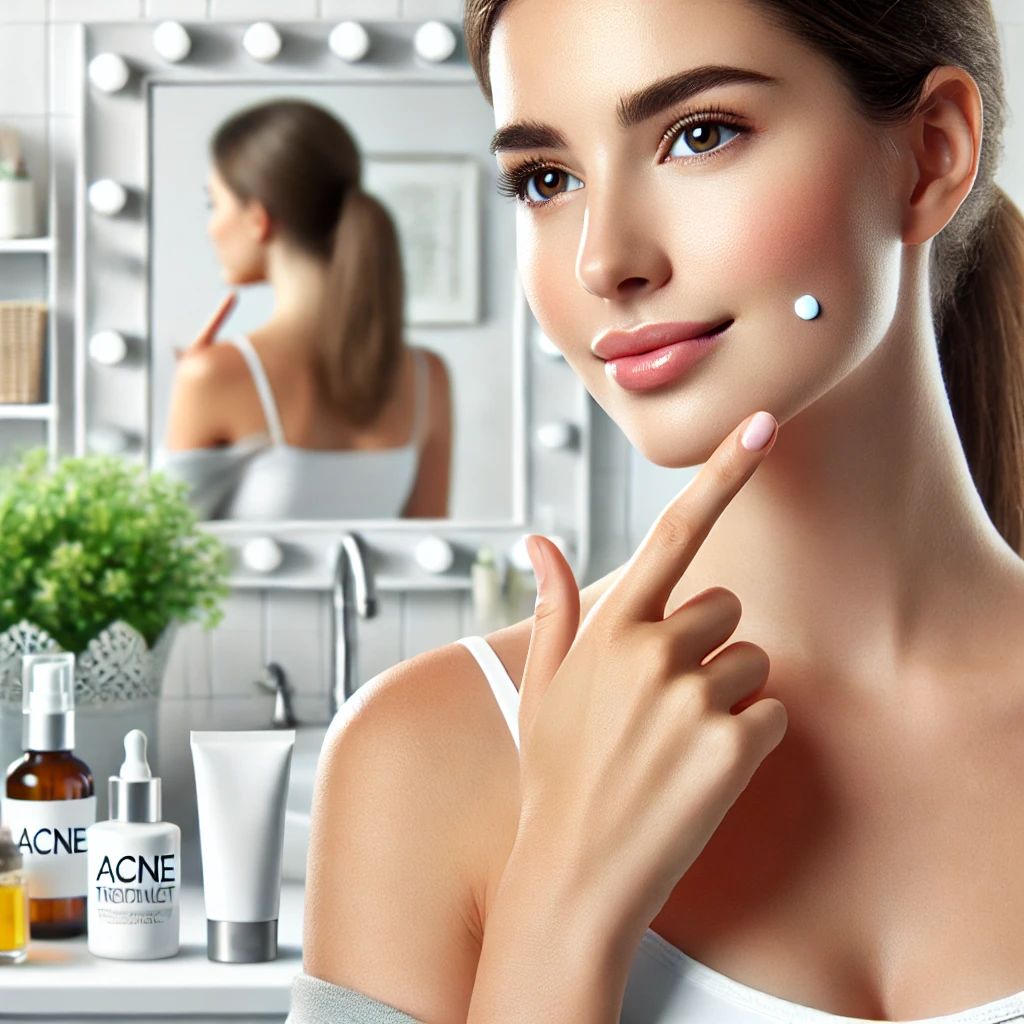
Acne is a common skin condition that affects millions of people worldwide. It can be frustrating and challenging, impacting not only your appearance but also your confidence and self-esteem. However, managing acne effectively is possible with the right approach and a bit of patience. In this guide, we’ll explore practical and positive strategies to help you manage acne and achieve clearer, healthier skin.
Understanding Acne
Before diving into the solutions, it’s essential to understand what acne is and what causes it. Acne occurs when hair follicles become clogged with oil and dead skin cells. This can result in whiteheads, blackheads, pimples, and in severe cases, cystic lesions. Several factors contribute to acne, including:
- Hormonal Changes: Fluctuations in hormones, especially during puberty, menstruation, or pregnancy, can increase oil production and lead to acne.
- Diet: Certain foods, particularly those high in refined sugars and dairy, may trigger or worsen acne in some individuals.
- Stress: Stress doesn’t directly cause acne, but it can exacerbate existing conditions by increasing inflammation and oil production.
- Genetics: If your parents had acne, you might be more prone to developing it as well.
- Skincare Products: Using products that clog pores or irritate the skin can contribute to breakouts.
Establishing a Gentle Skincare Routine
A consistent and gentle skincare routine is crucial for managing acne. Harsh products and excessive scrubbing can irritate your skin and worsen acne.
- Cleansing: Use a mild, non-comedogenic cleanser to wash your face twice a day. Avoid scrubbing your skin too hard, as this can cause irritation.
- Exfoliation: Incorporate a gentle exfoliant once or twice a week. Look for products containing salicylic acid or alpha hydroxy acids (AHAs), which help remove dead skin cells without causing excessive dryness.
- Moisturizing: Even if you have oily skin, moisturizing is essential. Choose a lightweight, oil-free moisturizer to keep your skin hydrated and balanced.
- Sun Protection: Use a broad-spectrum sunscreen with SPF 30 or higher every day. Some acne treatments can make your skin more sensitive to the sun, so protecting it is crucial.
Targeted Treatments
There are several effective over-the-counter and prescription treatments available for managing acne. Finding the right one may require some experimentation and, in some cases, a visit to a dermatologist.
- Benzoyl Peroxide: This ingredient kills acne-causing bacteria and helps reduce inflammation. Start with a lower concentration to avoid excessive dryness and irritation.
- Salicylic Acid: Salicylic acid helps unclog pores and exfoliate the skin. It’s especially effective for treating blackheads and whiteheads.
- Retinoids: Retinoids, derived from vitamin A, promote cell turnover and prevent clogged pores. They can be found in both over-the-counter and prescription formulations.
- Antibiotics: For more severe acne, topical or oral antibiotics may be prescribed to reduce bacteria and inflammation.
- Hormonal Treatments: For women, hormonal treatments like birth control pills or anti-androgen medications can help regulate hormones that cause acne.
Healthy Lifestyle Choices
Your lifestyle choices play a significant role in managing acne. Making a few adjustments can support your skin’s health and improve its appearance.
- Balanced Diet: Eat a diet rich in fruits, vegetables, lean proteins, and whole grains. Avoid excessive consumption of sugary foods and dairy products, as they can exacerbate acne in some people.
- Hydration: Drink plenty of water throughout the day to keep your skin hydrated and help flush out toxins.
- Stress Management: Practice stress-reducing activities like yoga, meditation, or deep breathing exercises. Managing stress can help reduce the severity of acne flare-ups.
- Sleep: Aim for 7-9 hours of quality sleep each night. Sleep is essential for overall health and helps your skin repair and regenerate.
Avoiding Common Triggers
Identifying and avoiding common acne triggers can prevent breakouts and improve your skin’s condition.
- Touching Your Face: Avoid touching your face frequently, as this can transfer bacteria and oils from your hands to your skin.
- Hair Products: Hair products can sometimes clog pores and cause breakouts along the hairline. Use non-comedogenic hair products and try to keep them away from your face.
- Sweat: Sweat can trap dirt and bacteria on your skin. Shower promptly after exercising and avoid wearing tight clothing that can irritate the skin.
Seeking Professional Help
If over-the-counter treatments aren’t effective, or if you have severe acne, it’s essential to seek professional help. A dermatologist can provide personalized treatment options and help you develop an effective skincare routine.
- Professional Treatments: Dermatologists can offer treatments like chemical peels, laser therapy, or light therapy to target acne and improve your skin’s appearance.
- Prescription Medications: Prescription-strength topical or oral medications can be more effective for severe acne. Your dermatologist can determine the best treatment plan for your specific needs.
Positive Mindset and Patience
Managing acne requires time, patience, and a positive mindset. It’s easy to feel frustrated when you don’t see immediate results, but remember that consistency is key.
- Celebrate Small Wins: Acknowledge the small improvements in your skin and celebrate your efforts to care for it.
- Stay Informed: Educate yourself about acne and its treatments, but avoid obsessing over every blemish. Knowledge is power, but balance is essential.
- Support System: Surround yourself with supportive friends and family who understand what you’re going through and can offer encouragement.
Conclusion
Managing acne is a journey that involves understanding your skin, establishing a consistent skincare routine, and making healthy lifestyle choices. With patience and the right approach, you can achieve clearer, healthier skin and boost your confidence. Embrace these tips, stay positive, and remember that you’re not alone in your journey to managing acne. Your skin will thank you for the care and attention you provide.


